Was the life of hunter-gatherers as solitary, poor, nasty, brutish and short as Victorian historians thought?
By Nick Nutter | Updated 26 Aug 2022 | Andalucia | History |
Login to add to YOUR Favourites or Read Later
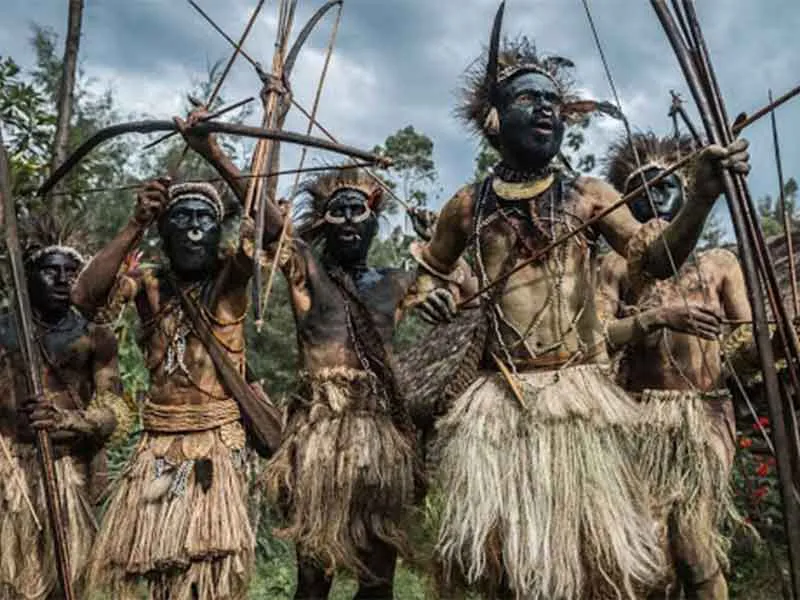
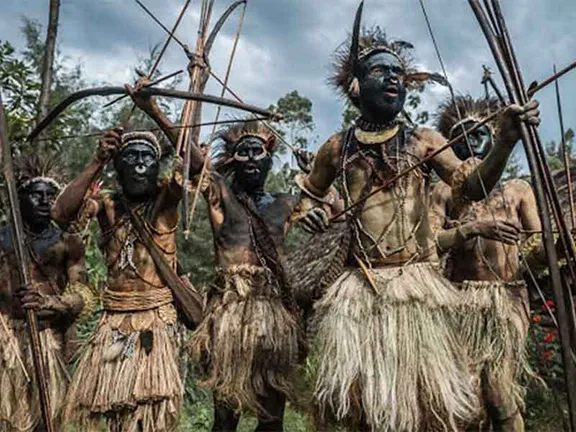
‘Solitary, poor, nasty, brutish and short’. So spake Thomas Hobbes in 1651, describing pre civilisation people. The problem is, well two problems really, is that he was dead wrong and his concept of prehistoric, in particular what we would call hunter-gatherer people, has lived on to this day. Which begs a question. Why in the face of insurmountable evidence to the contrary do many people still have this perception of hunter-gatherers?
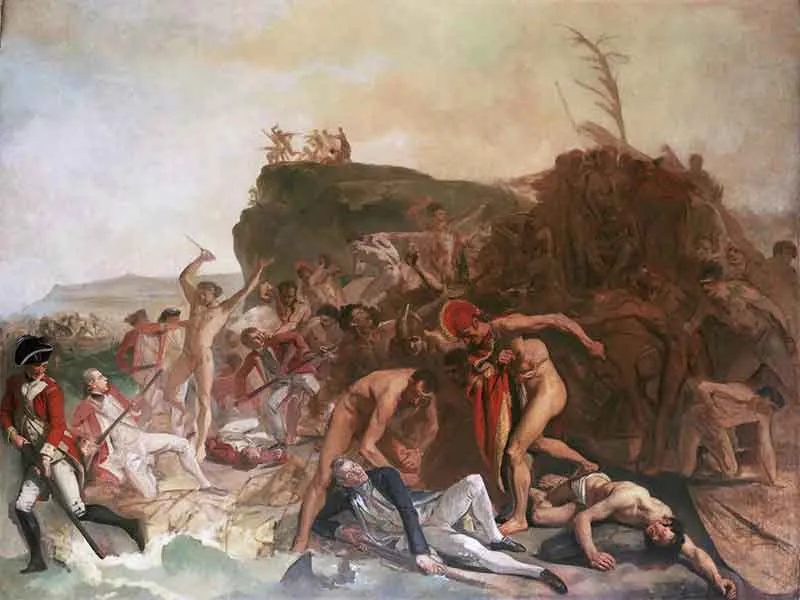
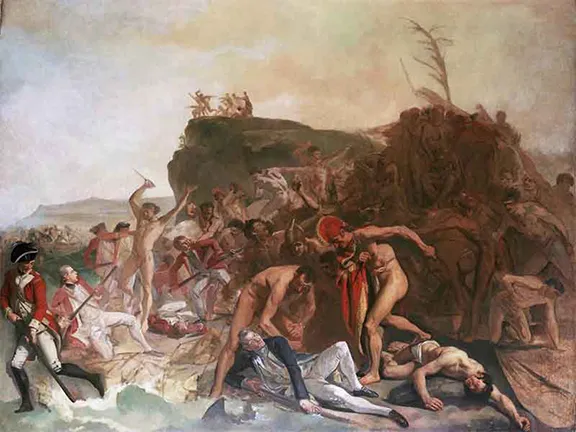
When Europeans began to explore the world during the 15th century they encountered hundreds of tribes who were living as pre-Neolithic people in Europe would have lived; by hunting and gathering. Some of those explorers recorded their thoughts. Let us start with perhaps the most famous explorer, Christopher Columbus. He arrived in the Caribbean and this is what he had to say about the natives he encountered there. ‘They are the best people in the world and above all the gentlest – without knowledge of what is evil – nor do they murder or steal … They love their neighbours as themselves and they have the sweetest talk in the world … always laughing’.
Charles Darwen had similar thoughts about the natives of Tierra del Fuego and anthropologists from the late 19th century on have been in agreement.
Even in the late 15th century, white Europeans were convinced they were the superior race, the supreme race on Earth and that all others were subhuman, to be exploited. Such ideas go back to at least Roman times and probably before. They have been used to justify the exploitation of other races (I am averse to using the word race because genetics now show that it is incorrect to try to pigeon hole people in such a way), as slaves, as low paid workers, as having no right to property and so on. Those ideas were and are today still a salve to the conscience.
Columbus and his countrymen went on to deprive the South American people of property, silver and gold, to exploit them as slaves and ultimately to indulge in genocide, despite them being ‘the best people in the world’.
Let us try to disassemble Hobbes’s statement word by word starting with solitary.
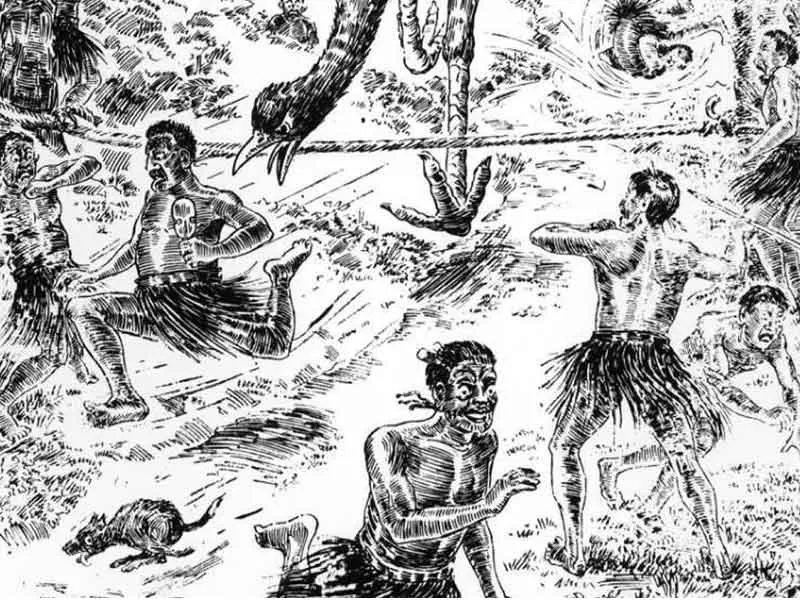
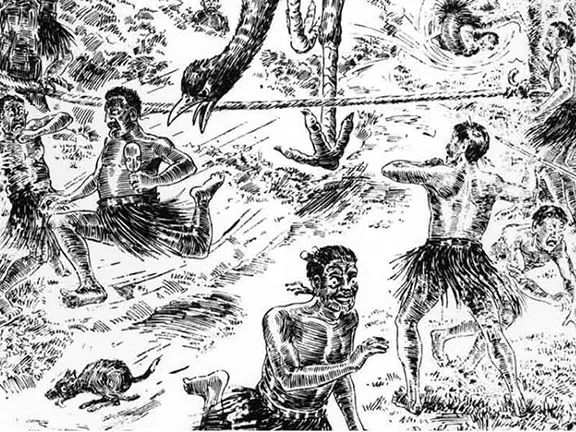
A typical hunter-gatherer band consists of between 15 and 30 individuals, men, women, children and babies. They live together, play together and work together. Babies are cared for by every member of the band. Anyone may cuddle a baby that is distressed, everybody contributes to the child’s education and even the elders create play in order to teach essential survival skills. A hunter-gatherer was never lonely never mind solitary.
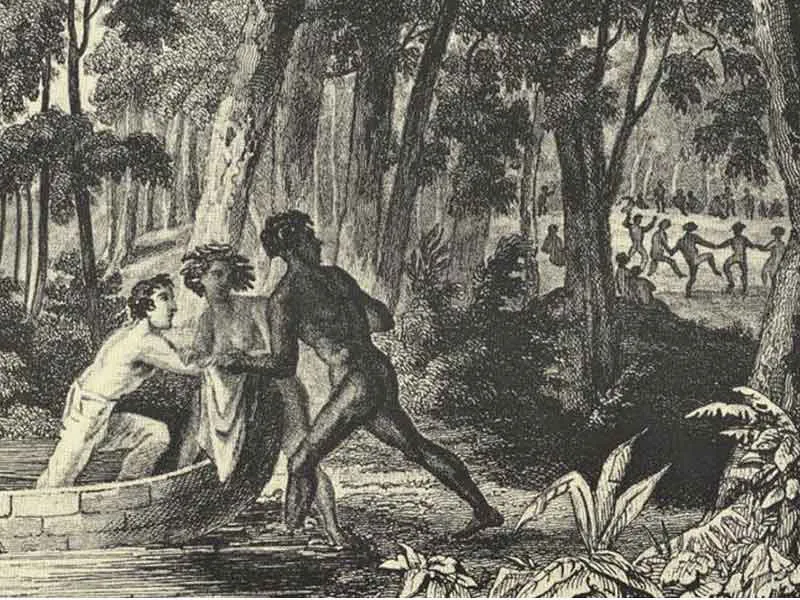
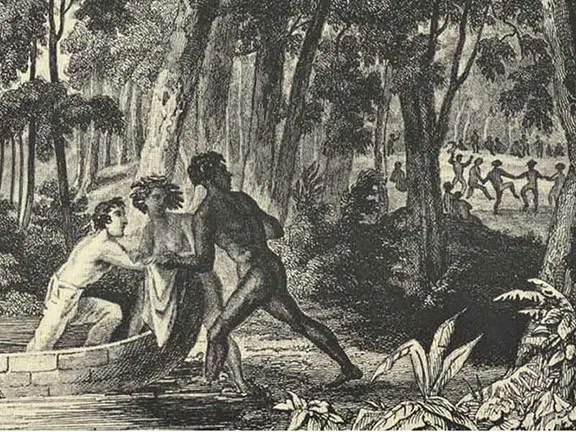
Well, it depends on your definition. Most hunter-gatherers would tell you that they have everything they need and everything they want so how can they be poor? There are innumerable examples of hunter-gatherers being exposed to the ways of westerners and being amazed at their propensity for accruing belongings. Many, if not all, can hardly wait to return to their band. One story I like is about a group of natives being brought to the USA from Papua New Guinea during the 19th century. They were amazed at what they saw; the fine houses, servants, people owning more horses than they could ride, the envy and greed that was and still is endemic. Everything they observed was an alien concept. When they returned to Papua New Guinea the only thing they took back with them was the idea of using feathers on their arrows to make them fly more true. As regards their quality of life, the typical hunter-gatherer spends 4 hours per day acquiring and preparing food with friends and colleagues. The rest of the time is quality time with friends and family.
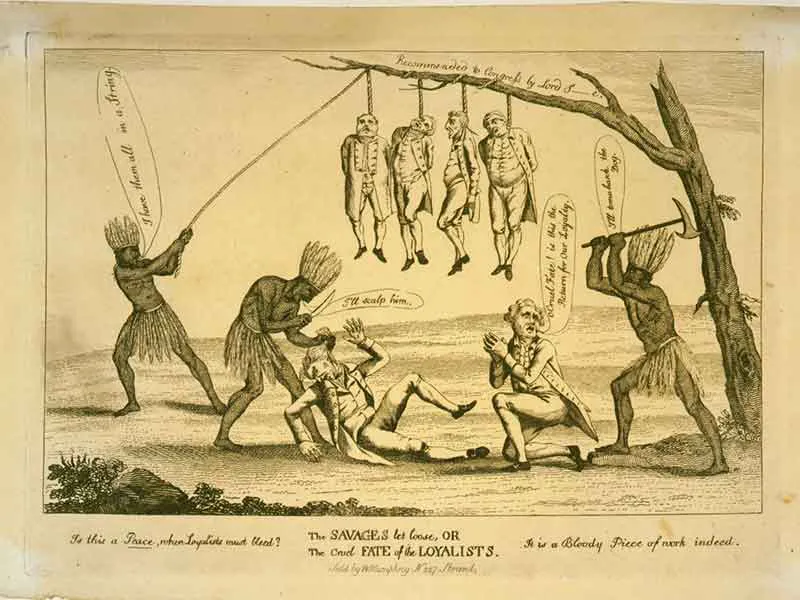
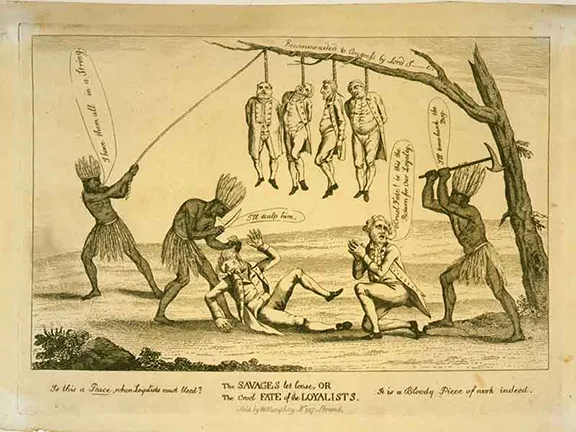
Nasty is a bad word defined as ‘behaving in an unpleasant or spiteful way’. Hunter-gatherers could not be nasty or they would not have survived. To survive they had to depend on each other. If one person failed to bring home an antelope then he would be fed by somebody that had. If one group only gathered enough wild grain to make one flatbread, that flatbread would be shared amongst the band. Furthermore, such behaviour was expected. Any member of the band showing any degree of selfishness, eating the blackberries as they were picked rather than putting them in the basket, would be humiliated by other members of the band. Many surviving hunter-gatherer tribes actually laugh at the miscreant to cause him discomfort. Selflessness is even extended to other bands, even to strangers from far away, as early explorers discovered.
Brutish meant something a little different in Hobbes’s time. In those days it meant ‘like an animal’ and the Latin root means, ‘heavy, dull or stupid’. Well, hunter-gatherers are not animals, they are human. Neither were they heavy, the impertinence of it when you think of the modern world full of grossly fat people. Hobbes himself was no sylph like figure, but then, in the 17th century, to be portly indicated a certain affluence. Anthropologists would be hard pressed to name any hunter-gatherer band where one person had so much to eat over any other person, that he or she could be described as heavy. Hunter-gatherers tend to take what they need and no more. Surplus can never be stored because of the mobility of the band and being overweight is a definite disadvantage when you are chasing that antelope.
When Hobbes used the word short he was referring to the lifespan of a hunter-gatherer, not his stature. Even then he would have been wrong. Average heights for hunter gatherers were 5ft 10ins. The average male in the 16th century was 5ft 5ins. So, lifespan. Yes, the average lifespan was much shorter than that of today. However, the numbers of babies and infants that died before the age of 1 year old was hugely greater than it is today, about 26% and the average mortality before puberty was 48.8%. Today those figures globally (including 3rd world nations) is 2.9% and 4.6% respectively so the ‘average’ was skewed. Many hunter-gatherers lived into their 70s and even 80s. They were also much healthier, they suffered less tooth decay, and very little from the degenerative diseases such as cancer, diabetes, fibromyalgia and multiple sclerosis. Incidences of heart disease and stroke were rare. Whichever way you look at it the typical hunter-gatherer was not short.
Even before Hobbes, who was by the way an English philosopher, considered to be one of the founders of modern political philosophy, (note the political part), Europeans had a preconceived idea of what a hunter-gatherer should look like, how he should behave and his degree of humanness. Without going into the subject too much, there are dozens of books that explore the subject in great depth, the negative attributes only started to develop with the onset of civilisation and that occurred during and after the Neolithic period. Until then pre-Neolithic man had no concept of personal possessions. Anything he had, arrows, spears, toolmaking kit etc, was, by necessity, portable and shareable with others. Neither did he have a concept of land ownership. He was a part of the landscape, not its proprietor.
None of the foregoing denies that, on occasion, hunter-gatherer tribes had then and have now, disputes with other tribes. In many instances the dispute is dealt with by an exchange of gifts, sometimes by the offender walking away, rarely by all out violence. Violence and selfishness are definitely not something built into the human genome. It is something that humans have learned. Nor can it be claimed that hunter-gatherers lived in a ‘garden of Eden’, or that it was ‘the golden age’ of humanity. The dangers hunter-gatherer communities faced were as great proportionally as the dangers we face today, just different.
Horticulture changed how humans lived in all the seperate regions of the world in which it independently started, with permanent settlements, a social order required to organise storage of surplus food, armies to defend the surplus, elites, and I include religious leaders, to control the surplus and trade, all the trappings of ‘modern’ civilisation with its multiple layers of bureaucrats, all of whom need supporting by the working classes. Once an elite tastes the fruits of success he is very reluctant to give them up. It is in his own best interests to maintain a social distance between his own class and those that support it. One way is to persuade the workers that it is natural to have classes and just unfortunate that some have to be workers, it is the natural order of things. Somewhere along the way events took an even sharper decline when the economies of these agricultural communities developed into capitalism.
Capitalists need workers, preferably low paid and even better, for free. They need expanding markets and annual growth in order to borrow money against future earnings to build more factories and increase production. They need a political system that supports them or in an ideal world, is controlled by them or indeed is them. It was therefore advantageous to capitalists to portray all 'jonny foreigners', beyond the white Europeans, as available for exploitation because they were barely human and to safeguard their own position at the top of the tree.
And who were those capitalists? Well they just happened to be the elites that had been keeping the classes apart. It was easy for them to portray 'primitive' tribes as yet another class, a subhuman one. As a bonus the existing workers could now be told there was a class below them so things couldn't be all that bad, could they?
To conclude with all those thoughts in mind. Our explanations of far distant events in the past can better be determined by an appreciation of the true nature of the hunter-gatherer and the increasing social pressures put on the Neolithic people and those who came after, not to mention the differing motives of the seperate classes that started to appear. Peasant revolts can be more easily understood, as can the integration of Neanderthal and modern human.
Open the mind to open the history book.
Diamond Jared. 'The World Until Yesterday'
Harman Chris. 'A People’s History of the World'
Harari. Yuval Noah. 'Sapiens: A Brief History of Humankind'
Ryan Christopher. 'Civilized to Death'
Whittle Alasdair. 'The Times of Their Lives: Hunting History in the Archaeology of Neolithic Europe'